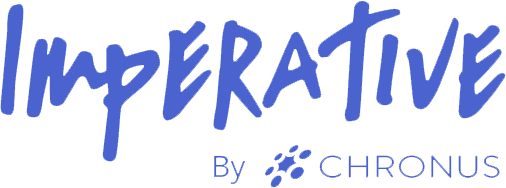4 Ways Your Manager Trainings Are Falling Short

As we approach the 2 year mark of the pandemic, we can say we’ve overcome adversities, adapted quickly, and learned that remote and hybrid work works. But organizations still find themselves grappling with how to best address significant challenges of a remote workforce–loneliness, lack of connection, and engagement. Since the EVP transformed rapidly from being about features and benefits to covering employees’ social and emotional needs, organizations quickly realized it was essential for employees to feel a sense of purpose and fulfillment in their day-to-day work. As organizations start leading these cultural transformations, managers are at the core of building strong, connected teams to embody their values.
But 84% of U.S workers say poorly trained managers create unnecessary stress; with 50% U.S workers saying they felt their own performance would improve if their direct supervisor received additional training in people management. So how do you set up your managers, and their teams, for success?
Managers Are Facilitators of Change
The manager role today elevated from years ago, with coaching skills now being a non-negotiable in the role. At the core of strong performing teams is high psychological safety and strong connections that encourage collaboration and innovation. Behind every strong team is a manager who can effectively lead change and cultivate the right environment for team members to succeed. This takes on an entirely new meaning with remote work.
Where previously managers may have dealt more often with one-off instances and occasional conflicts, they must now be fully equipped to address a significantly greater need for emotional support, and be prepared to adapt to the next challenge the ever changing workforce will bring.
So Where Are Traditional Trainings Falling Short… and What Can I Do About It?
In our webinar two weeks ago, we discussed the 4 reasons manager trainings are falling short today.
1) Not Anchored to Individual Purpose
Traditionally, training has focused more on tactical skills and values relevant to the organization without addressing employees’ individual purpose. When managers are able to identify what gives them a sense of purpose, they can anchor it to their work, driving their motivation and internalizing learnings more effectively.
Idea: Revamp training to include space for managers to identify what drives them and gives them fulfillment, to help energize them in their role.
2) No Ongoing Space For Reflection
As we shared in last week’s blog, reflection is needed for people to properly process stress and change. It helps stabilize emotions and enables deep learning to help people store information and create meaning. Without space for reflection, managers are unable to absorb information and drive meaningful change within the organization if they have not had the space to process mental barriers.
Idea: Incorporate ongoing reflection into managers’ flow of work.
With the extreme challenges of the pandemic, processing their experience is necessary to help alleviate stress. The more often managers reflect, the more it will become a habit they can rely on to build resiliency.
3) Doesn’t Address Lack of Connection
Traditionally, connection may not have been a top priority for L&D, but when people are lonely, this leads to stress, anxiety, and depression, making it even more difficult for them to connect and absorb information. Gallup recently found managers are more likely to experience burnout than the individual people they manage. When a manager is burnt out, they do not have the proper space to help their team with their individual challenges, and your organization is left vulnerable.
Idea: Allow managers the space and opportunity to connect with peers consistently. Beyond task-based interaction, encourage them to intentionally connect with peers.
This will have several impacts: through connecting with peers, managers will feel understood, inspired by different perspectives, and more connected to the organization. Lastly, their basic need for human connection will be fulfilled as well, and they’ll have the chance to hone their power skills like: listening, empathy, and resilience.
4) Doesn’t Enable Holistic Skills Such as Coaching, Building Inclusion, & Leading Effective Change
Often managers are held more accountable for operational results than their people management skills. Although both are essential to an organization’s success, a manager sets a solid foundation for success by cultivating a trusting, empathetic environment to motivate their team. Without this psychological safety, team members will not perform as well, and there is a higher chance for miscommunication within the team. Additionally, when faced with an immediate challenge, managers must have coaching skills to address the issue at hand, whether it be performance-related, career-related, or team-related. With emotional intelligence and coaching skills, managers hold the two keys to leading effective change.
Idea: Prioritize managers’ leadership skills over tactical, administrative ones. To help them best absorb and apply these skills, incorporate an ongoing opportunity for them to practice coaching, focus on building emotional intelligence, and helping them make people-first decisions.
Where Do I Start?
By now, you may have identified a few areas your training falls short. While these topics sound like a lot to address, peer coaching is one way organizations can ensure managers have an opportunity to learn, practice, and apply the core skills listed above. Through peer coaching, we have helped several organizations connect managers to identify their individual purpose, reflect on their experience, and build power skills to help their teams succeed. It is all in the flow of work, and ongoing to ensure true behavioral change.
“I felt very scattered entering the conversation and it was nice to take the time to process my challenges and goals with another leader, and put some actionable tasks in place to move balls forward on individual projects.” -Manager, Zillow
Sounds A Bit Like Magic
It is…well, you know, the kind of magic that’s powered on science. Based on years of research and expertise, Imperative matches peers across a company for regular guided coaching conversations.
Every two weeks, peers are guided through a personalized conversation that is scientifically engineered to be psychologically safe, positive, reflective, and energizing. These conversations enable employees to grow their power skills in the flow of work through practice and reflection.
During each conversation, each peer commits to one action they want to complete before they meet next, driving behavior change through commitment and accountability. Every quarter, they’re matched with a new peer, building a boundary-spanning network.
“It must be the unicorn magic… these matches are a PERFECT FIT!” -Sr. Manager, Hasbro
Does It *Actually Work?
Our trailblazing clients like Zillow, Hasbro, and Boston Scientific have seen these results across their organization by using the Imperative Platform:
- Personal Growth—78% of employees report peer coaching made them more successful
- Deeper Connections—89% of connections created build a meaningful and sustained relationship
- Holistic Wellbeing—Employees leave each conversation with 2.4X more positive emotions
- Shared Purpose—85% of employees report the ability to connect their purpose to their work
- Radical Flexibility—After every conversation, 80% of employees take action to craft their job
Our mission at Imperative is to humanize work and make work more fulfilling for every person. After 30,000 hours of peer coaching conversations, the data is in: peer coaching is the bright spot you’re looking for. Let’s chat about how we can bring this to life for your company.







